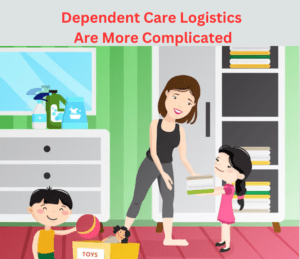Introduction:
During the summer, many parents struggle to find cheap childcare while working. Many Parents think “Summer Camp Tax Deductible?” However, there are tax benefits available to help offset some of the costs of summer camp and other childcare bills. If both parents are working or actively looking for work, summer camp fees may be eligible for the child and dependent care tax credit. These expenses may also be eligible for tax-free withdrawals from a dependent care flexible spending account. Parents must meet specific conditions, such as being gainfully employed or actively seeking employment, to be eligible for these benefits. Based on your personal circumstances, it’s critical to assess which option—child and dependent care tax credit or dependent care flexible spending account—will provide the most financial benefits.
Is Summer Camp Tax Deductible?


If you and your spouse both work and have children under the age of 13, the cost of summer day camp may qualify you for the child and dependent care tax credit, which can be even more valuable than a tax deductible. Day care, a nanny or babysitter, and other child care charges are also eligible while you and your spouse work or hunt for work. “Nursery school, preschool, or similar programs’ below the level of kindergarten count. Even if school expenditures are not eligible for this break when your child begins kindergarten, you can still include other child care charges. “People have a tendency to overlook that.”
How Much Is the Tax Credit Worth?


The credit is worth 20% to 35% of qualified child care charges up to $3,000 for one child or $6,000 for two or more children. The larger the credit, the lesser your income. If your adjusted gross income is more than $43,000 (whether you’re single, married, or filing as head of household), it’s worth 20% of your qualified costs, but there is no upper income limit. A tax credit decreases your tax burden dollar for dollar, so even if you have the greatest income, the credit can still save you $600 for one kid or $1,200 for two or more children. The expenses must normally be for care before your child is 13, although you may be able to count care after that age.
Does Summer Camp Count for FSA Dependent Care?
Yes, summer camp qualifies for FSA dependent care, and if you have a work account, it may be an even better method to spend tax-free funds for the expense. If your employer provides this account, you can contribute up to $5,000 per year pretax to the FSA, which you can then withdraw tax-free for eligible child care expenses. The eligibility criteria are the same as for the child care tax credit: The child care expenses must be for children under the age of 13 while you and your spouse work or look for work. Similarly to the tax credit, the cost of summer day camp can be deducted, but the cost of overnight camp cannot. In most cases, you can contribute up to $5,000 per year per household.
Dependent Care Logistics Are More Complicated


The logistics of dependent care FSAs are a little more complicated than tax credits. With the tax credit, you only need to register the care provider’s Social Security number or tax ID number and retain receipts from eligible expenses in your tax records. To withdraw funds from your dependent care FSA, you must first submit your expenses to your plan administrator for reimbursement. Furthermore, you cannot withdraw FSA funds until your child has gotten the care. “You cannot claim it ahead of time,” says Stephen Durso, director of client services, benefits accounts at WTW, an employee benefits consulting organization. That is, if you pay a deposit for camp ahead of time, you cannot withdraw it. That implies that if you pay a deposit for camp ahead of time, you won’t be able to withdraw the funds until the programe begins. Furthermore, unlike a health care FSA, which allows you to spend the entire year’s contributions before they are deducted from your paychecks, a dependent care FSA allows you to access the money only once you have contributed it to your account. “The additional reimbursements can be made to you as the money comes out of your paycheck throughout the year,” Durso explains. You’ll eventually be able to withdraw money for all of your eligible costs, although it may take a few months.
Dependent Care FSA vs. Child Care Tax Credit


Tax breaks cannot be used twice, so run the figures both ways before determining which one to utilize. Remember that if you have already contributed to the dependent care FSA, you must spend that money by the end of the year, or it will be forfeited. “The biggest disadvantage of the FSA is that it is ‘use it or lose it.’ Typically, you must make your choice for the next year during open enrolment at the conclusion of the year. If your childcare arrangements change later and you don’t use it, you lose the money. Most plans will allow you to change your contributions during the year, but there is still some risk. Because the dependent care FSA reduces your taxable income, the tax benefits increase as your income rises. Generally, the higher your income (marginal tax bracket), the better the FSA comes out.
If you only have one child under the age of 13, more of your child care costs will be eligible for the dependent care FSA than the child and dependent care tax credit – the maximum dependent care FSA contribution is $5,000 regardless of how many children you have, but you can only count up to $3,000 in child care costs towards the tax credit if you only have one eligible child. In the case of one child, you get to use $5,000 of expenses for an FSA but only $3,000 for the credit. If you have two or more children, you may be able to use the dependent care FSA to its maximum while still receiving a small tax credit. This is because the maximum FSA contribution is $5,000, while the tax credit is available for up to $6,000 in child care costs. Even though the amount you contributed to the FSA reduces the expenses that are eligible for the credit, you can use the FSA to its maximum and also claim the tax credit for up to $1,000 in child care costs, which can reduce your tax burden by $200 to $350 depending on your income level.
Conclusion :
Working parents who pay for their children’s summer camp may be eligible for tax incentives such as the child and dependent care tax credit or tax-free withdrawals from a dependent care flexible spending account. Summer day camp fees for children under the age of 13 are tax deductible, but overnight camp expenses are not. The tax credit is worth 20% of eligible expenses, and there is no income limit. Contributions to the dependent care FSA are limited to $5,000 per year and cover qualifying child care expenses. It is critical to weigh the advantages and disadvantages of each alternative, as well as the logistical and budgetary ramifications. Parents must select between the tax credit and the FSA based on the number of children and the potential tax savings. A thorough examination is required to determine the best option for summer camp and child care expenses.
To Read more about Personal Finance : Click here
To update yourself by reading below books:





Thank you for your sharing. I am worried that I lack creative ideas. It is your article that makes me full of hope. Thank you. But, I have a question, can you help me?
I don’t think the title of your article matches the content lol. Just kidding, mainly because I had some doubts after reading the article.
I don’t think the title of your article matches the content lol. Just kidding, mainly because I had some doubts after reading the article.
Can you be more specific about the content of your article? After reading it, I still have some doubts. Hope you can help me.
Your point of view caught my eye and was very interesting. Thanks. I have a question for you.
Can you be more specific about the content of your article? After reading it, I still have some doubts. Hope you can help me.
Thank you for your sharing. I am worried that I lack creative ideas. It is your article that makes me full of hope. Thank you. But, I have a question, can you help me?